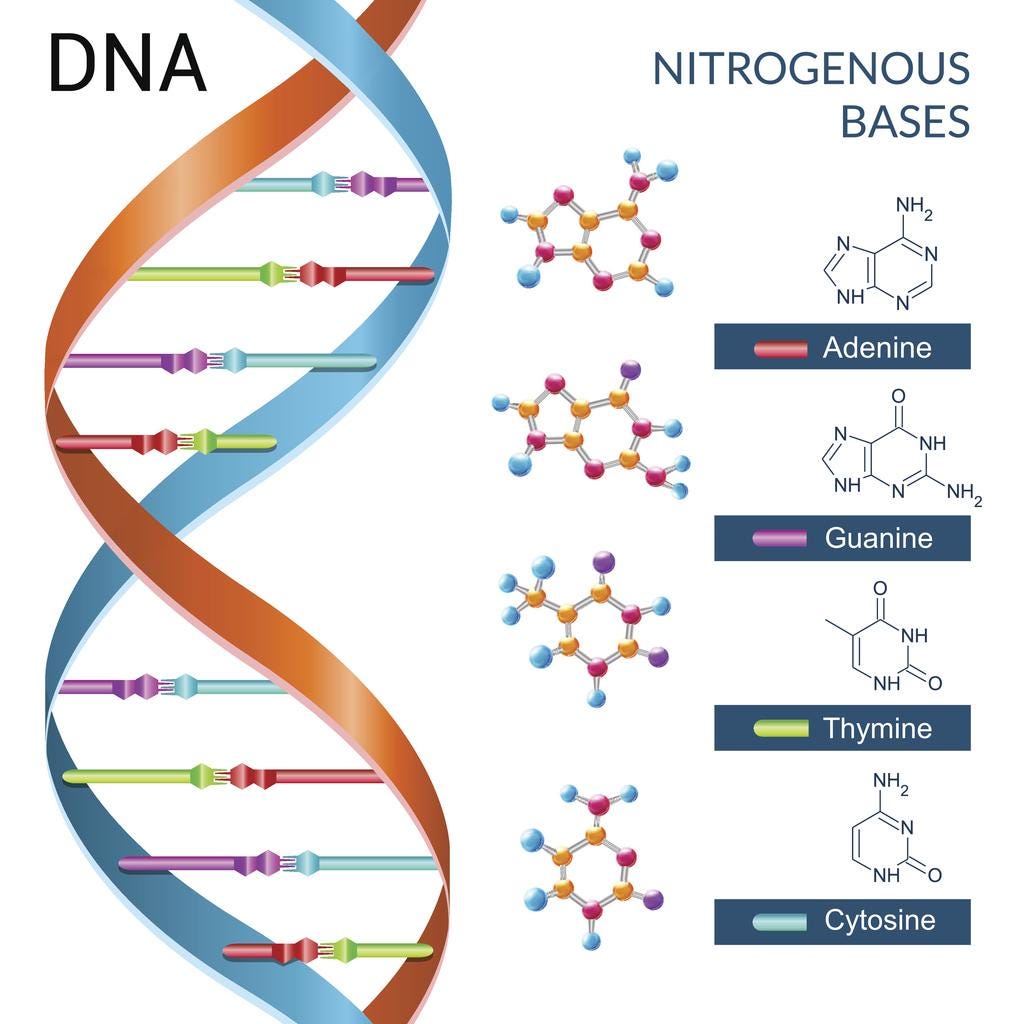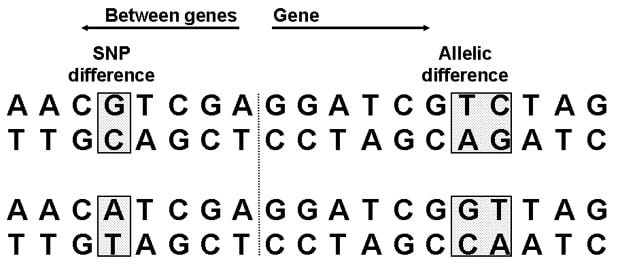Most people who read this blog have probably forgotten their high school biology. However, it’s crucial for understanding the latest developments in behavioural genetics. So here’s a quick primer:
Humans have around 20-25,000 genes.
A gene is the unit of inheritance, but in practice it’s difficult to know where one gene begins and another ends.
Genes constantly turn on and off during our lifetime.
The genes are distributed over two sets of 23 chromosomes, one from each parent.
A chromosome is made up of two strands of DNA molecules (the famous helix pattern).
Offspring randomly inherit strands from each parent.
Each strand is made up of base molecules: Adenine, Guanine, Cytosine, and Thymine.
Each part of a pair comes from one parent. There are 3 billion of these base pairs, also called nucleotides.
The order of the pairs is the genetic code.
Genes create amino acids that form thousands of proteins.
Proteins are the building blocks of life and determine the function of organisms at the cellular level.
The sequence from amino acid creation to protein formation is called gene expression.
We said that genes turn on and off, well methylation is the process of cell development. It can change the structure of Adenine and Cytosine in base pairs.
The modified genes can be inherited.
Epigenetics is the study of how gene expression is modified by non-genetic factors, like smoking or trauma.
The form of a gene is called an allele. For example, a gene for a massive set of testicles might be expressed as TT. Each parent contributes either a T or a t. So there are 4 possible combinations for this allele.
However, the most common type of genetic variation results from SNPs, pronounced as “snips”. It stands for single nucleotide polymorphisms. There are 30 million SNPs, most aren’t functional.
We use genome-wide association studies (GWAS) to identify different SNPs between different groups (say high IQ vs low IQ). A standard gene sequence might read something like GTCAAGTCCATTCG. However, in some people the first letter will be different and that might be a tiny cause of their increased intelligence (or a crippling disease).
There are only a handful of diseases which are the result of a single gene mutation, for example: cystic fibrosis, hemochromatosis, Tay-Sachs, and sickle cell anemia.
When it comes to intelligence, we’re now very sure that the same genetic and environmental factors that cause low or average intelligence are responsible for high intelligence. This is called the continuity hypothesis. This means that the effects of certain genes will be additive: more of them might mean more intelligence.
For example, here’s the neuroscientist Richard Haier talking about one particularly cool study:
The fourth study demonstrating progress takes another approach (Davis et al., 2015). These researchers also focused on one molecular factor, a protein called DUF1220 that is associated with brain size and brain evolution. DUF1220 has two main subtypes, CON1 and CON2. Many gene sequences have multiple copies in a person’s DNA and the number of copies can be related to diseases and other traits. In this study, not only was the number of copies of CON2 associated with IQ scores, the association was linear. That is, the more copies of CON2, the higher the IQ score. Brain size, assessed by MRI, also was correlated to IQ score.
If you liked this, please do subscribe. Maybe give it a share to spread the gospel of rationality. And if you want to support my work, you can do so with a paid Substack subscription or using the following methods:
https://www.patreon.com/Ideas_Sleep
BTC wallet address: 1KHB3Mq7njTGfquABcREsiywaxmDbP2NPY
And subscribe to my YouTube Channel here.












